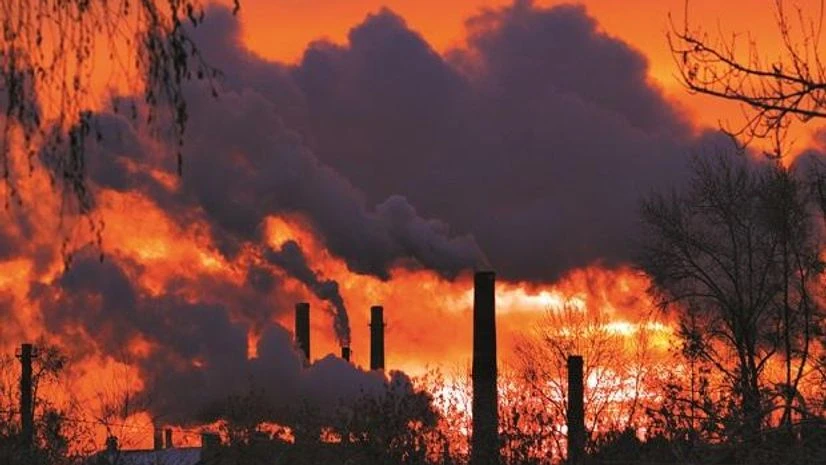India is among four South Asian countries where children are most at risk of the impacts of climate change threatening their health, education, and protection, according to a new UNICEF report.
'The Climate Crisis Is a Child Rights Crisis: Introducing the Children's Climate Risk Index' (CCRI) is UNICEF's first focussed on children. It ranks countries based on children's exposure to climate and environmental shocks such as cyclones and heatwaves, as well as their vulnerability to those shocks based on their access to essential services.
Pakistan, Bangladesh, Afghanistan and India are among four South Asian countries where children are at extremely high risk of the impacts of the climate crisis, with a ranking of 14th, 15th, 25th and 26th respectively.
CCRI has placed India as one of the 33 extremely high-risk countries with flooding and air pollution being the repeated environmental shocks leading to socio-economic adverse consequences for women and children.
Approximately 1 billion children live in one of the 33 countries classified as extremely high-risk, including the four South Asian countries.
It is estimated that more than 600 million Indians will face 'acute water shortages' in the coming years, while at the same time flash flooding is to increase significantly in the majority of India's urban areas once the global temperature increase rises above 2 Celsius. Twenty-one of the world's 30 cities with the most polluted air in 2020 were in India.
Dr Yasmin Ali Haque, UNICEF India Representative, said, Climate change is a child rights crisis. The Children's Climate Change Index data has pointed to the serious deprivations faced by children due to the intensifying effect that climate and environmental shocks have on existing inadequate access to essential services such as water and sanitation, healthcare and education."
"Understanding where and how children are uniquely vulnerable to this crisis is crucial to building our resilience and effectively addressing climate change. UNICEF hopes the findings of the report will help prioritize action to protect those most at risk and to ensure that children inherit a livable planet."
India's neighbours Nepal is ranked 51st and Sri Lanka 61st. Bhutan is ranked 111th, with children at relatively lower risk.
"For the first time, we have clear evidence of the impact of climate change on millions of children in South Asia. Droughts, floods, air pollution and river erosion across the region have left millions of children homeless and hungry, and without any healthcare and water, said George Laryea-Adjei, UNICEF Regional Director for South Asia.
Together, climate change and the COVID-19 pandemic have created an alarming crisis for South Asian children. The time to act is now - if we invest in water, healthcare and education, we can protect their futures from the impacts of a changing climate and degrading environment, Laryea-Adjei said.
(Only the headline and picture of this report may have been reworked by the Business Standard staff; the rest of the content is auto-generated from a syndicated feed.)

)
